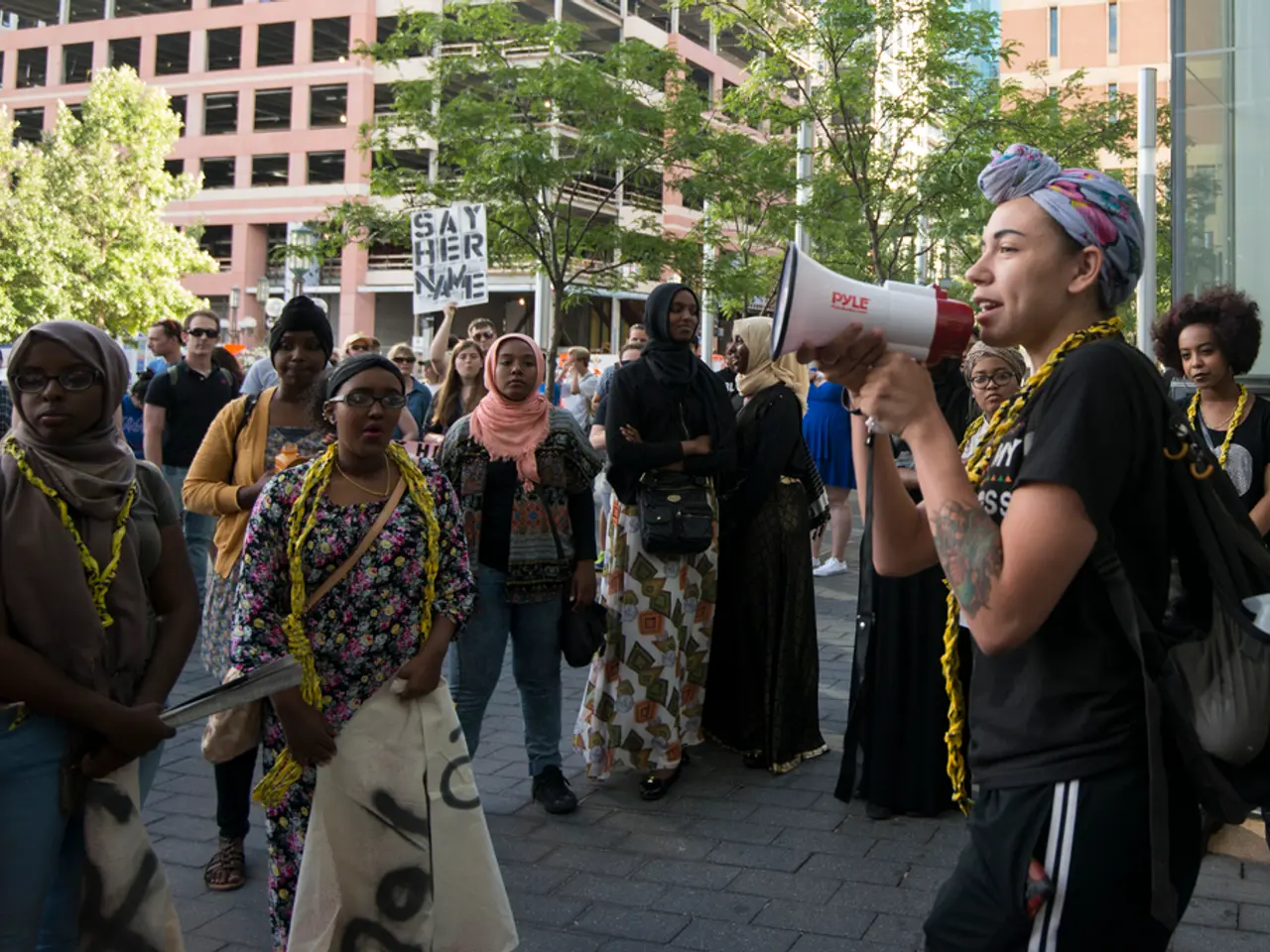Political party in Spain, Partido Popular, plans to ban the wearing of burkas
In a recent development, Alberto Núñez Feijoo, leader of Spain's main opposition party, the Popular Party (PP), has expressed his support for banning the use of burka and niqab in public spaces. This stance, however, does not extend to the hijab, which the PP considers compatible with religious freedom and public security.
Feijoo's position aligns with that of some European countries like France, Belgium, and Austria, which have already banned these garments in public spaces due to concerns over women's dignity and public safety. The PP's position, according to Feijoo, is "not against religion" but centred on these very issues.
The PP's stance on the issue continues a political discussion that has periodically appeared in Spain's national debate. As of August 2025, Spain has no nationwide law banning the hijab, burka, or niqab, but there is significant political momentum towards prohibiting the burka and niqab in public spaces.
The burka and niqab, which cover the face completely or except for eyes, are targeted for prohibition by the PP. Meanwhile, the hijab, which covers the head and neck but leaves the face visible, is supported by the PP as compatible with religious freedom and public security, and they reject any ban on it.
At a local level, the PP has influenced measures in places like the town of Jumilla, Murcia, where regulations around certain religious garments have been proposed or enacted. However, these are still framed as local initiatives and have sparked controversy.
Meanwhile, the far-right Vox party has pushed for even broader bans that include the hijab in schools, hospitals, and other public institutions. However, this proposal has not gained mainstream acceptance.
Critics argue that proposed bans on full-face coverings could infringe on constitutional protections and create social division, as seen in heated local debates. The Spanish Constitution guarantees freedom of ideology, religion, and worship, with restrictions only allowed for maintaining public order.
In conclusion, Spain currently does not have a national law banning burka, niqab, or hijab, but is witnessing political movements—especially by the Popular Party—to ban the burka and niqab in public spaces, while maintaining that the hijab should remain permitted. Proposals have sparked debate balancing religious freedom, women's rights, and public safety concerns.
No new legislation has been passed federally as of August 2025, but the political climate indicates potential future bans on face-covering Islamic veils outside the hijab. Feijoo framed his national position as a matter of drawing clear boundaries between religious freedom and the protection of women's rights and security.
Feijoo has emphasized that nothing has been prohibited by the local initiative in Jumilla. Spanish media outlets Onda Cero and Cadena SER have widely covered Feijoo's intervention, highlighting his defense of the motion in Jumilla and his call for national consistency on the issue.
Feijoo distinguished between the hijab, considered compatible with public life in Spain, and garments that conceal the entire face, associated with security concerns and the subordination of women. The debate over the use of full-face coverings in public spaces continues to be a contentious issue in Spain and across Europe.
Read also:
- Weekly happenings in the German Federal Parliament (Bundestag)
- Southwest region's most popular posts, accompanied by an inquiry:
- Discussion between Putin and Trump in Alaska could potentially overshadow Ukraine's concerns
- Massive 8.8 earthquake hits off the coast of Russia's Kamchatka Peninsula, prompting Japan to issue a tsunami alert.








